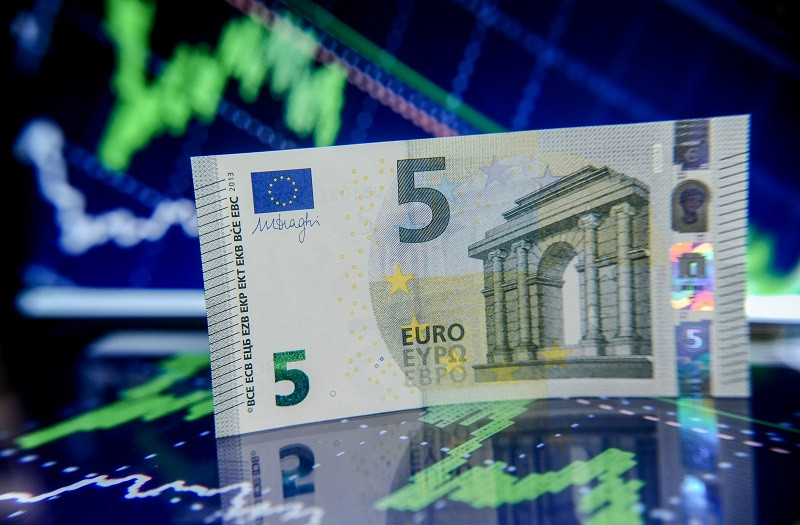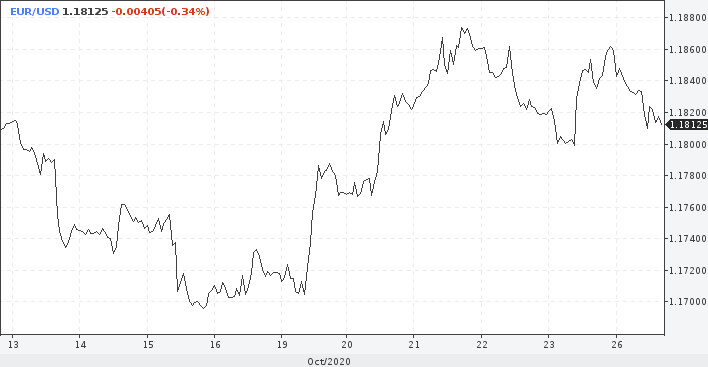
The viral component and the lack of progress in the negotiations on stimulus measures in the United States are forcing market players to move away from risk and pay attention to defensive assets, including the dollar, which has gone on the offensive against major currencies and the EM sector. US stocks retreat on Monday, losing more than 1% on key indices. Ahead of the presidential elections and related uncertainty. It looks like the situation is heating up, and the last week before the elections will be marked by risk-off. It slowly becomes clear that if Joe Biden wins, current President Donald Trump will resist the outcome of the election.
The current market concern is largely due to record increases in the number of cases in the US and European countries. Nothing new has yet appeared in the arsenal of the American authorities that could soften the blow to the economy. The vaccine is still far away, which means that restrictive measures cannot be avoided. Even if they are gentle, the consequences will not be long in coming. This can be observed in Europe. The markets have assessed the September index of activity in the service sector of the Eurozone. Judging by the numbers, the sector is in trouble again.
If everything goes on like this, the fiscal or monetary authorities will begin to intervene. In this regard, the medium-term prospects for the euro are becoming increasingly negative. The ECB meeting will take place this week and investors are waiting for the regulator's reaction to the drop in activity in the service sector and a downgrade of growth forecasts for the Euroblock by the market.
Given the deteriorating coronavirus situation, the rate will not be adjusted. However, this does not negate the typical increase in volatility before and after the meeting. In addition, it is worth paying attention to the increasing demand for the greenback. The euro will most likely not be able to avoid another downward correction wave.
As observed, the euro began a new week in the red zone due to the worsening epidemiological situation in the region. There is a risk that the governments of European countries will begin to introduce new quarantine restrictions.
From a technical point of view, it makes sense to revise the boundaries of the range 1.17-1.19. In the meantime, the main Forex pair manages to maintain this balance.

There are growing opinions among investors that if the European Central Bank does not soften the monetary policy at the upcoming meeting, it will certainly do so at the December meeting. The financial authorities are likely to increase the volume of the emergency asset purchase program, which currently provides for the purchase of securities for 1.35 trillion euros, for example, for 600 billion euros, and will extend it until the end of next year. If the regulator also cuts rates, the euro will be in trouble.





















